One of the great game industry battles of the turn of century was the standoff between Quake III Arena and Unreal Tournament. With both multiplayer focused first person shooters released just weeks apart from one another, that the two games would wind up going head to head was inevitable. If pressed I am always going to have to say I favour the former, but the remarkable thing for us Linux users is that, for a time, both games lived harmoniously under the same publisher.
More than any other developer, Loki Software can be credited with founding the Linux games industry, and with them still riding high at the time, they went on to publish both titles on our platform. More than just popular games, Quake III Arena and Unreal Tournament were also flagships for the engine technology within. Unreal Engine 1 and id Tech 3 would go on to be used in dozens of other titles, some of which would also be ported by Loki Software before their closure in 2002.
While Quake III Arena was granted its place in eternity when its source code was released in 2005, community support for Unreal Tournament was able to breathe some new life into the game, even with the limitations of the closed binary. By 2018 however the game was no longer launching for Mesa users. Due to certain core files being statically linked to an archaic libstdc++ library, the game can only be ran outside of Software mode on the free graphics stack with the use of a hacked Mesa patch.
After spinning my own Mesa packages by use of the Arch Build System, I reinstalled Unreal Tournament using the data from GOG.com and the ut-install-436-goty.run Linux installer. I could now start the game without producing a segmentation fault, and other than some sound quality problems everything seemed to be normal. After installing a third party OpenGL renderer, OpenAL audio device, and S3TC textures the game was looking and sounding better than ever before.
With my love of a straight bot DeathMatch, it took me a while to discover that changing to any other kind of game mode from the menu would cause the game to crash with a "Signal: SIGIOT [iot trap]" error. This, along with the need to apply Mesa patches in the first place, severely hampers the game for use at my next LAN party. With the Linux versions of Unreal Gold, such as those provided by icculus.org or Unreal 227, also relying on this game to work, that takes them out of contention as well.
As I mentioned before, Unreal Tournament was not the only Unreal Engine 1 game Loki Software worked on. Rune has to be the most fitting port they ever produced, with the company's namesake Norse trickster god even appearing as the archvillain. It was also one of the last ports that Loki Software released before closing down, and as such is just modern enough to make me wince at the fact I am no longer capable of getting it to work.
With a patched Mesa the game launches and renders fine, but you can no longer load your saved games while using OpenGL, meaning you are once again stuck with Software mode. The crackling stuttering audio I encountered with Unreal Tournament is also present here, but is now unavoidable due the game shipping only with its default OpenAL audio device. I tried using some of the alternatives available for Unreal Tournament, but Rune refused to load them.
I remember playing through the whole game close to ten years back when I was still on Fedora and having a good time with it. Rune has a very solid if lengthy campaign with tight controls that plays more like its first person shooter contemporaries than many other third person games did. The developer Human Head Studios would go on to work on the original Prey, which also supports Linux and I have written about previously.
If there is one silver lining in all of this, it is that all of these games can be made to work reasonably well with WINE or Proton without the need to fiddle around with Mesa to get them to launch. Performance does suffer if you do not supply an OpenGL renderer such as those by Chris Dohnal, but once properly configured the games can be made to run almost as if they were native applications. I even got a higher frame rate in Unreal Tournament.
Launching them still requires some patience, as they all seem prone to false starts, but once you do get to the main menus all seems to be well. This also allows you to reunite the games with their brethren Deus Ex, which if not for the closure of Loki Software would have become a native Linux title. I can confirm that Rune Gold, Unreal Gold, Unreal Tournament GOTY Edition, and Deus Ex GOTY Edition from GOG.com all can be made to WINE well with a few tweaks.
For an engine with such a pedigree on Linux this outcome is still disappointing. It may just be my pride getting in the way, but there is something special about being able to get the old native binaries to work, especially in the case of Rune where I have it on disc with the full retail packaging. It also makes me wonder how well my modern library of native titles is going to run in twenty years time, and if I will be forced to use a compatibility layer to run some of them too.
According to Ryan Gordon's recent Patreon post, the former Loki Software employee once came close to reviving Rune on Linux in some form but it "slipped through [his] fingers". The source code release of Quake III Arena has allowed it to transcend all the boundaries imposed by time, while its erstwhile adversary begins to languish. For those who value games as more than just ephemera, I can only hope such releases start to become the norm.
UPDATE 1: Since publishing this article a new modified build of Unreal Tournament has come to light. This version has been made to work around the symbol collision with recent versions of libstdc++ which in turn produced the segmentation faults with modern versions of Mesa. I have also been made aware of a Lutris script that allows their package of Unreal Gold to run with Mesa.
Also thanks to adamhm for providing a method that allows all of the Unreal Engine 1 games to start reliably with WINE.
UPDATE 2: The OldUnreal project has released an updated build of Unreal Tournament with the blessing of Epic Games that no longer suffers from the issues mentioned here. More information can be found in this article by Liam Dawe.
We have 2 options. Never remove apis or make a wrapper.
ps: I just tested, simcity 3000 still works.
Quoting: jordicomaI remember 3 o 4 years ago, I manage to make rune and simcity 3000 to run with some tweeks (on nvidia graphics card). But it's meant to happen on old hardware. When you change apis, you break compatibility.Would a flatpak or snap package do for a wrapper?
We have 2 options. Never remove apis or make a wrapper.
ps: I just tested, simcity 3000 still works.
Quoting: Perkeleen_VittupääI don't know, I don't use flatpaks. But I think probably it can solve something, but probably not all problems.Quoting: jordicomaI remember 3 o 4 years ago, I manage to make rune and simcity 3000 to run with some tweeks (on nvidia graphics card). But it's meant to happen on old hardware. When you change apis, you break compatibility.Would a flatpak or snap package do for a wrapper?
We have 2 options. Never remove apis or make a wrapper.
ps: I just tested, simcity 3000 still works.
I'm sure flatpaks also needs some technologies and if it changes, probably cannot work.
I would like to see if someone manages to make one of this games run on modern computers with a flatpak.
Quoting: KayKay91Shouldn't removing libgcc and libstdc++ from game's folder fix this? Lutris has a script called "Mesa fix" for Unreal Gold which basically removes these files after using "GOG + OldUnreal 227i" script installer.I can confirm that not having those libraries in the System folder makes no difference to Unreal Tournament and the game will still segmentation fault.
On the Lutris page for Unreal Tournament (1999) I also can not help but notice it says this:
"If using open source mesa drivers, switch to software rendering in the game's .ini config file."
I am going to try the Lutris script for Unreal Gold, but I am not optimistic.
The same can not be said for Unreal Tournament or Rune when installed from Lutris. I wonder if this is because of the work done on the Unreal 227 patch?
- Heretic 2
- Rune
- Unreal Gold
and I can say that, even if you can run them with some tweaks natively on Linux, you will obtain better result with Wine because Windows version:
- has more recent updates
- better multiplayer compatibility and stability
- you have access to alt/tab keys (not with old native Linux games)
Last edited by legluondunet on 4 Feb 2020 at 11:44 pm UTC
Quoting: legluondunetI wroted 3 Lutris scripts installer for this games:I just tried your Lutris script for Heretic II incidentally, and it hangs for me at "Extracting data.tar.gz". Any idea what is going on there?
- Heretic 2
Quoting: HamishI have an idea, I just sent you a mp.Quoting: legluondunetI wroted 3 Lutris scripts installer for this games:I just tried your Lutris script for Heretic II incidentally, and it hangs for me at "Extracting data.tar.gz". Any idea what is going on there?
- Heretic 2
Last edited by legluondunet on 4 Feb 2020 at 11:45 pm UTC
Quoting: HamishLaunching them still requires some patience, as they all seem prone to false starts...Try starting them with: taskset 0x1 <command>
(make sure to disable CSMT before doing this)
Quoting: adamhmTry starting them with: taskset 0x1 <command>That does indeed do the trick, thanks.
(make sure to disable CSMT before doing this)
Last edited by Hamish on 24 Feb 2022 at 12:16 am UTC
https://www.ign.com/articles/2004/02/05/unreal-tournament-2004-6
Hmmm... according to Wikipedia, the original Unreal Tournament was going to be open source until Loki took it over:
https://en.wikipedia.org/wiki/Unreal_Tournament
You just need to install some extra audio packages and launch the game using a special command for the audio.
The game's old renderer is also still usable so you don't even have to mod the game to play, but it won't support super high res. (2560x1080 works, 2560x1440 didn't for me)
See here for my WIP updated package build for arch. (based on the GOG AUR package)
https://drive.google.com/open?id=18Z2WnMgNdAsHG_N61ltFoRvEnLL2XCx2
Basically you install the following: lib32-sdl lib32-libgl ossp innoextract lgogdownloader
Using gog downloader you can download the game from gog from the command line straight into the folder where the package build is.
lgogdownloader gogdownloader://unreal_tournament_goty/en1installer0Then then just run makepkg and install.
makepkg
sudo pacman -U gog-unreal-tournament-goty-2.0.0.5-3-x86_64.pkg.tarThis package build will install the game to /opt (with more permissions so that game saves actually work, and you can add more mods/files to the game), and create a desktop file that points to launcher.sh and the game's icon.
The launch.sh command is the following:
cd "/opt/gog/gog-unreal-tournament-goty/System" && padsp ./ut-bin
From there the game is fully playable already on an AMD arch system. (even with 16 core cpu)
Then from there you can install the updated OGL renderer and some enhanced textures.
Note that the upcoming patch will include the updated renderers built-in. So once we get that you won't need to manually install it anymore. They are already whitelisting the renderers for server side.
Note also that the game is perfectly playable using VIRGL with QEMU. So you can run the game in an ARCH VM without needing to pass through a GPU. So the challenge is how many players can you cram onto a single PC? (each with their own 1080p monitor running the game at 100fps)
Anyway, those anti-cheat systems often reject my wine libraries, which is sad... but at least, you can still play vanilla in LAN.
The comment about virgl is interesting, now I want to make a mega multi-seat LAN party box :)
I suspect monitor bandwidth will be the actual bottleneck, though ^^
Quoting: BillFlemingThe author of this article really didn't do their research. The game runs fine without needing a patched mesa.Soo, could all this be possible to package somehow to a state that even a non-tech-savvy random occasional gamer could then enjoy Unreal Tournament on Linux? :huh:
You just need to install some extra audio packages and launch the game using a special command for the audio.
The game's old renderer is also still usable so you don't even have to mod the game to play, but it won't support super high res. (2560x1080 works, 2560x1440 didn't for me)
See here for my WIP updated package build for arch. (based on the GOG AUR package)
https://drive.google.com/open?id=18Z2WnMgNdAsHG_N61ltFoRvEnLL2XCx2
Basically you install the following: lib32-sdl lib32-libgl ossp innoextract lgogdownloader
Using gog downloader you can download the game from gog from the command line straight into the folder where the package build is.
lgogdownloader gogdownloader://unreal_tournament_goty/en1installer0
Then then just run makepkg and install.
makepkg
sudo pacman -U gog-unreal-tournament-goty-2.0.0.5-3-x86_64.pkg.tar
This package build will install the game to /opt (with more permissions so that game saves actually work, and you can add more mods/files to the game), and create a desktop file that points to launcher.sh and the game's icon.
The launch.sh command is the following:
cd "/opt/gog/gog-unreal-tournament-goty/System" && padsp ./ut-bin
From there the game is fully playable already on an AMD arch system. (even with 16 core cpu)
Then from there you can install the updated OGL renderer and some enhanced textures.
Note that the upcoming patch will include the updated renderers built-in. So once we get that you won't need to manually install it anymore. They are already whitelisting the renderers for server side.
Note also that the game is perfectly playable using VIRGL with QEMU. So you can run the game in an ARCH VM without needing to pass through a GPU. So the challenge is how many players can you cram onto a single PC? (each with their own 1080p monitor running the game at 100fps)
Those contained a native install with rpm's.
UT however, only contained a penguin on the box. But the way they partially opened the engine source was pretty great. UT99 still feels as the best game engine to me. And it was great that we could run plain Unreal with the same engine. Because I don't like multiplayer.
Quoting: Purple Library GuyOK, I don't know anything so this may be bogus, and anyway it's kind of shooting a mouse with an elephant gun, but . . . if worst came to worst, couldn't you run a VM and stick a whole old Linux in it and run the game in that?This is what Valve is trying to do with the containers. With the added benefit of security.
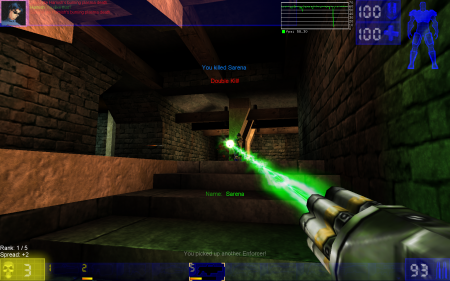
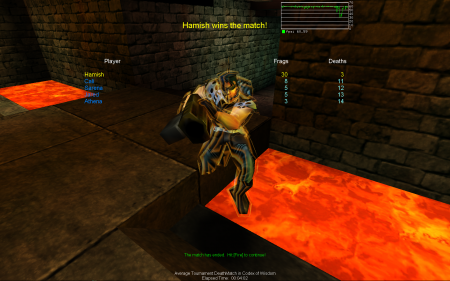
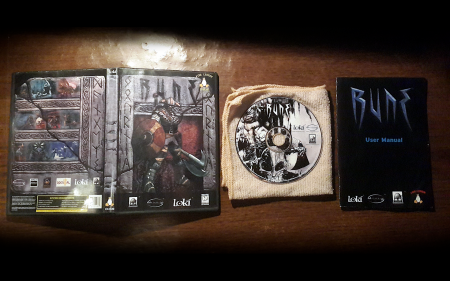
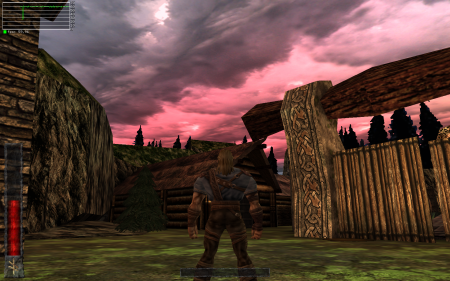
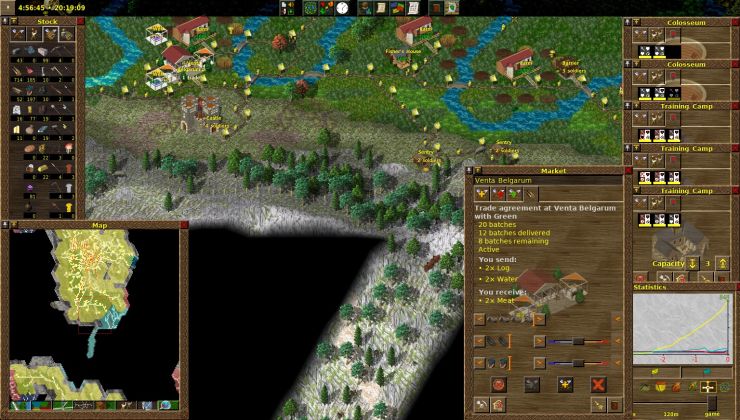
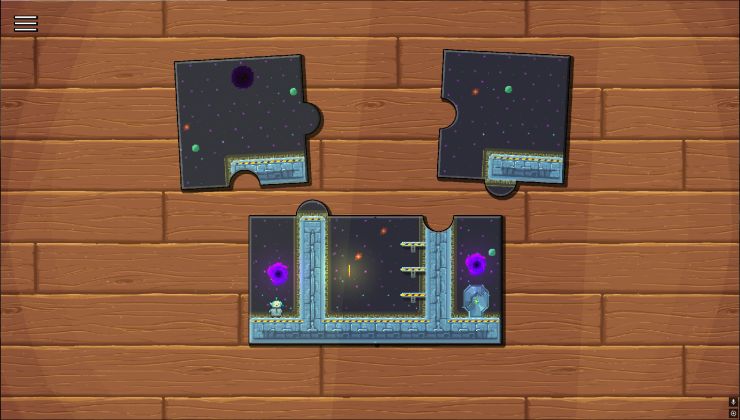
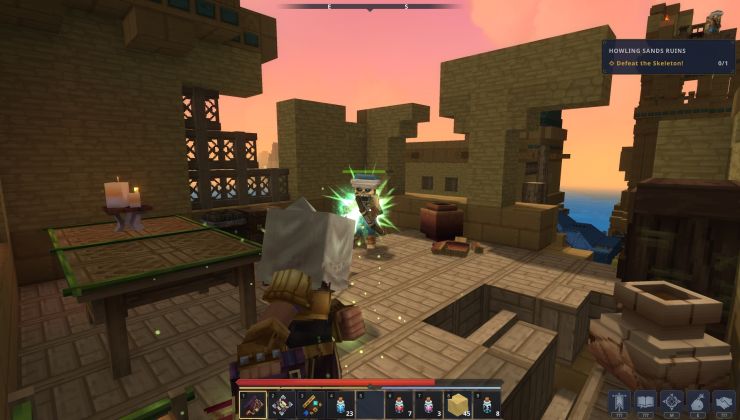
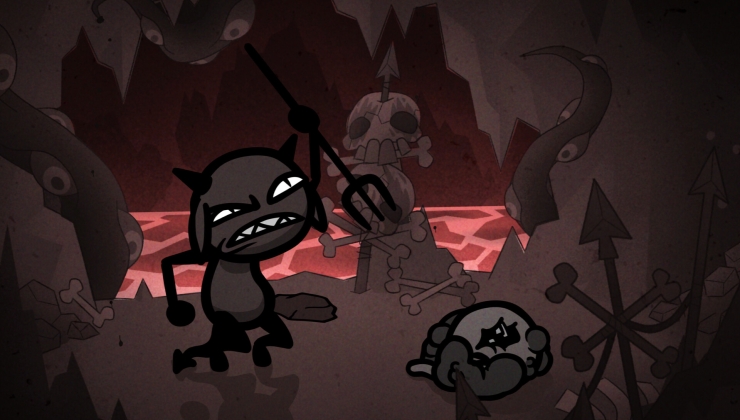





 How to setup OpenMW for modern Morrowind on Linux / SteamOS and Steam Deck
How to setup OpenMW for modern Morrowind on Linux / SteamOS and Steam Deck How to install Hollow Knight: Silksong mods on Linux, SteamOS and Steam Deck
How to install Hollow Knight: Silksong mods on Linux, SteamOS and Steam Deck